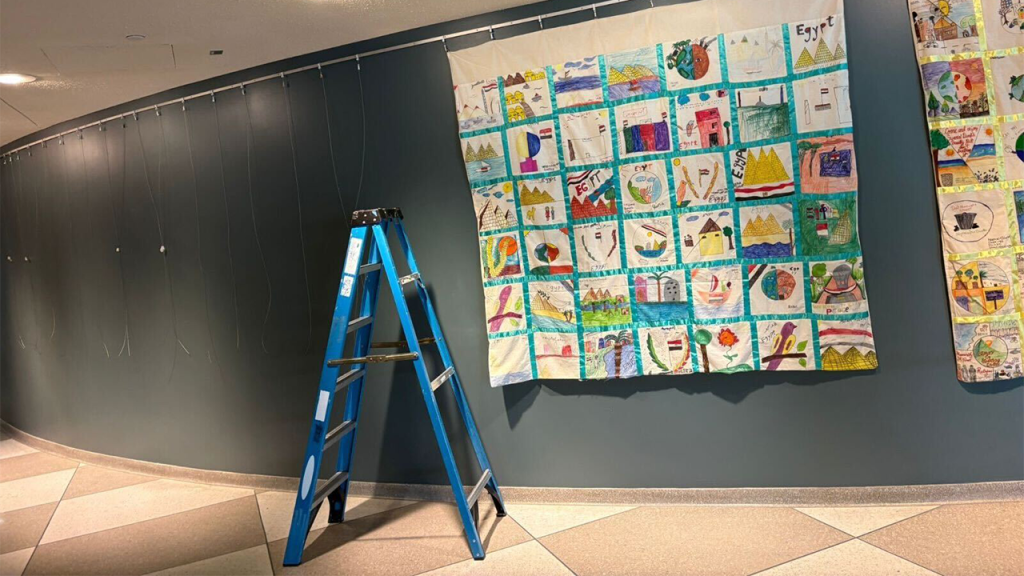The United Nations recently removed a controversial quilt panel artwork that called for the extermination of Israel. The painting depicted a map of Israel without the West Bank or Gaza partition, resembling a watermelon, with the Palestinian flag in the top right-hand corner. The map featured the phrases “From the River to the Sea” on the left side and “Will be Free” on the right side, which is a nod to the rallying cry for Palestinians where they believe Palestine will be free. The phrase is seen as a call to genocide by Israelis, who view it as a call for Israel to be wiped off the map entirely. The display drew widespread condemnation, with Israel’s permanent representative to the U.N. calling it a “disgrace” and demanding its removal.
The U.N. explained that the artwork was part of the “Peace Flags” exhibit, designed to repurpose fashion waste for positive impact. However, they acknowledged that certain panels, including the one with the controversial phrase “From the River to the Sea,” could not be displayed. Despite efforts to cover the panels in the second week of October, they were repeatedly uncovered, prompting security concerns. Israel’s representative, Danny Danon, criticized the U.N. for what he perceived as a lack of leadership in addressing the issue and confronting acts of antisemitism. The U.N. confirmed that after covering the panel with the controversial drawing, it was eventually removed entirely in response to the criticism.
The phrase “From the River to the Sea, Palestine Will be Free” has become a contentious issue, with Palestinians using it as a rallying cry in protests against Israel. The ongoing conflict in Gaza, triggered by a massacre in Israel by Hamas on Oct. 7, 2023, has further heightened tensions. Israelis view the phrase as a call for genocide and the eradication of Israel, leading to widespread condemnation and demands for removal of the controversial artwork. The artwork, which was part of an exhibit aimed at promoting positive impact through repurposing fashion waste, was removed after criticism from Israel’s representative and concerns over unauthorized interference in the exhibit.
Danon highlighted the hypocrisy he perceived in the U.N., citing a separate exhibition featuring children’s drawings where Israel was erased and replaced with hateful imagery. He emphasized the importance of standing up against acts of antisemitism and hypocrisy, and confronting them directly. The U.N. acknowledged the unauthorized interference in the exhibit and was working to identify those responsible through security footage review. The removal of the controversial panel with the “From the River to the Sea” drawing was confirmed, with the U.N. engaging with the Israeli ambassador to address the issue. Despite the initial backlash, efforts were made to respond to the criticism and ensure that the exhibit did not promote hate speech or incite violence.
The incident underscores the complexities and challenges surrounding the Israeli-Palestinian conflict, with deep-seated grievances on both sides fueling ongoing tensions and conflicts. The use of controversial phrases and imagery only serves to further exacerbate animosities and hinder efforts towards peace and reconciliation. The U.N.’s response to the incident reflects the delicate balance it must maintain between promoting freedom of expression and ensuring that expressions of hate speech or calls for violence are not tolerated. Moving forward, there is a continued need for dialogue, understanding, and mutual respect to address the underlying issues and work towards a peaceful resolution to the conflict.


